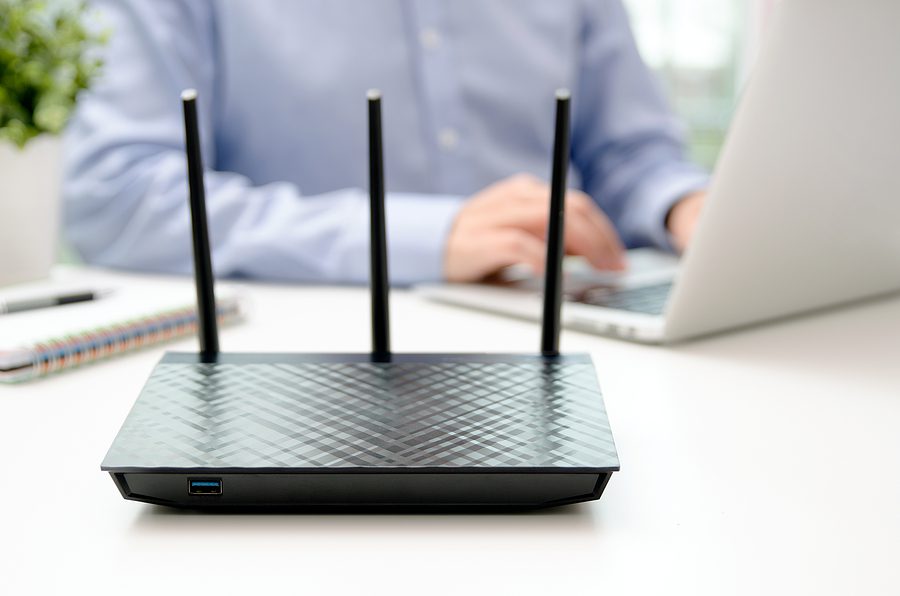Shedding Light on the Hidden Risks Found on Retired Routers
In the fast-paced evolution of technology, the retirement and recycling of networking devices are commonplace. However, a lurking issue often goes unnoticed: the residual data left on decommissioned routers. A recent research project sheds light on this problem, revealing the hidden risks associated with not thoroughly destroying networking devices.
Investigative Discoveries
The findings from a recent research project highlight a concerning trend in the disposal of used routers:
- Prevalence of Sensitive Data: The research project unveiled a startling revelation: a significant portion of decommissioned networking devices contained sensitive corporate data. This frequent occurrence of residual information highlights a widespread issue in the disposal practices of organizations, indicating a critical oversight in ensuring the confidentiality and security of corporate data during the decommissioning process.
- Types of Data Discovered: The types of residual data found on these devices were varied and deeply concerning. Detailed networking configurations, corporate login credentials, and sensitive customer information were among the data discovered. This mix of information could act as a treasure trove for cybercriminals, offering them keys to bypass security measures, gain unauthorized access to corporate networks, and potentially exploit customer information for malicious purposes.
- Discussion of Data Impact: The discovery of such sensitive data on retired routers and networking equipment brings to light the severe implications of security breaches. The availability of this information to individuals with malicious intent significantly elevates the risk of unauthorized network access, data theft, and potentially extensive financial and reputational damage to the organizations involved. It illustrates the urgent need for robust data sanitization protocols to prevent such vulnerabilities.
Understanding the Risks
The residual data on decommissioned devices pose substantial risks:
- Potential Consequences: The negligence of leaving sensitive information on decommissioned devices opens a Pandora’s box of cybersecurity threats. These include not just unauthorized access to corporate networks but also devastating data breaches that can cripple an organization’s operations, erode customer trust, and incur significant compliance penalties.
- Exploitation by Cybercriminals: The residual data left on these devices becomes a powerful tool for cybercriminals. They can exploit this information to craft highly targeted attacks, manipulating detailed insights about corporate networks and security practices. This enhances the effectiveness of their attacks and reduces their chances of detection.
- Real-world Scenarios: The theoretical risks of residual data have been realized in numerous instances. Hackers have successfully used credentials and other sensitive information on retired routers to infiltrate corporate networks. These breaches often result in substantial data theft, financial losses, and long-term reputational damage to the companies involved, showcasing the tangible consequences of inadequate data sanitation practices.
Wide-reaching Impact
The research revealed the diverse origins of the analyzed devices, indicating a widespread issue:
- Origins of Analyzed Devices: The decommissioned devices examined in the study originated from a broad spectrum of sectors, encompassing data centers, legal practices, technology firms, and more. This diversity underscores the widespread prevalence of the issue, transcending industry boundaries and highlighting the standard challenge organizations face in managing their networking equipment’s lifecycle.
- Affected Organizations: The wide array of organizations impacted by this issue underscores a crucial point: no sector is immune to the risks associated with improperly sanitized devices. Whether it’s a small law firm or a large tech company, the failure to properly cleanse decommissioned equipment can lead to severe security vulnerabilities, demonstrating the universal nature of this cybersecurity concern.
- Collective Implications: The investigation into residual data on retired routers reveals a problem of considerable magnitude, with far-reaching consequences for data security across numerous industries. The potential for sensitive information to be exploited puts a spotlight on the critical need for stringent data sanitization protocols, underscoring the shared responsibility of all organizations to safeguard against such vulnerabilities in an increasingly interconnected business landscape.
Responsiveness and Engagement
Efforts were made to address the findings of the research with the involved organizations:
- Informing Organizations: The researchers contacted organizations whose devices retained sensitive information, highlighting the issue’s urgency.
- Variety of Responses: The reactions ranged from proactive measures to address the findings to indifference, underscoring the variability in data security prioritization.
- The Need for Accountability: This situation underscores the critical need for organizations to take responsibility for data security, particularly in disposing of or repurposing old equipment.
Previous Research Insights
A look into past research efforts reveals a consistent pattern:
- Similar Initiatives: Other entities have conducted similar research, uncovering residual data on various types of decommissioned IT equipment.
- Comparison of Findings: These studies consistently find sensitive information left on disposed devices, underscoring a persistent oversight in data sanitization practices.
- Broader Implications: The cumulative research on residual data highlights a significant oversight in cybersecurity practices, emphasizing the need for improvement.
A Call for Vigilance and Action
The importance of thoroughly addressing the issue of residual data on decommissioned networking devices cannot be overstated. This calls for:
- Prioritization of Data Sanitization: Organizations must adopt rigorous data sanitization procedures for all decommissioned equipment.
- Proactive Measures: Increased awareness and proactive steps are essential to mitigate the cybersecurity risks associated with residual data.
- Collective Responsibility: There is a clear need for a collective effort among organizations across all sectors to address this critical issue.
The findings from recent research serve as a stark reminder of the hidden risks that retired routers and similar devices can pose. Organizations must recognize the importance of data security, not only in active use but also in technology disposal. Companies can significantly reduce their vulnerability to cyber-attacks and protect their data integrity by taking comprehensive steps to ensure the proper sanitization of retired devices. This proactive approach to cybersecurity is a best practice and a crucial defense in an increasingly digitized business environment.
Why Partner with AccuShred?
Illuminate your path to enhanced data security by partnering with AccuShred. Our comprehensive shredding services ensure the destruction of sensitive information stored on retired routers and other networking devices. Don’t leave your organization vulnerable to data breaches—take proactive steps to safeguard your data integrity today from the hidden risks lurking within retired IT equipment. Contact us today for information on electronic device destruction services.








